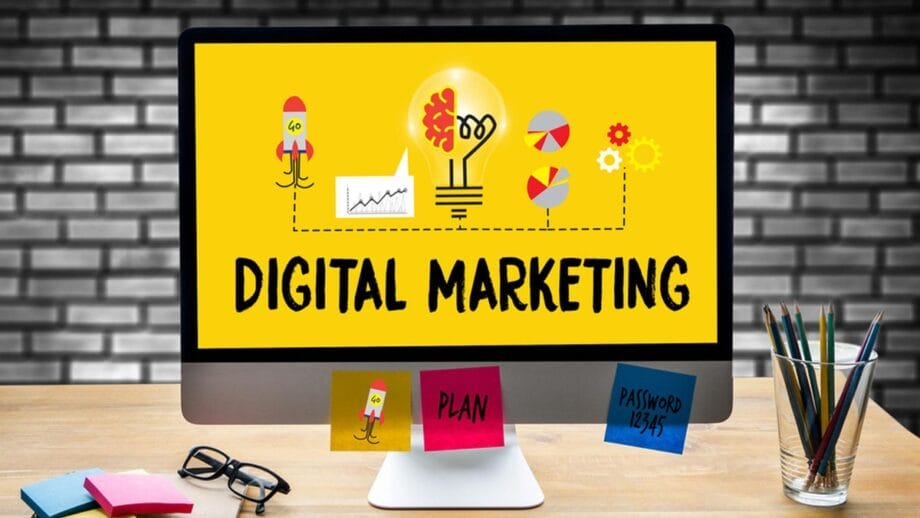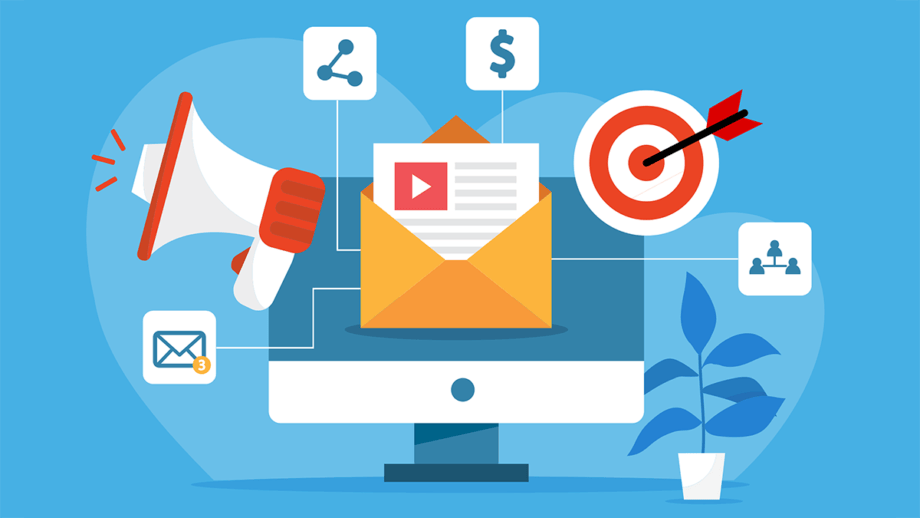Developing a great-looking website is essential to creating a great first impression on potential customers. But before you can set the right tone with your audience, you first need to know how to get them to your digital doorstep.
Unfortunately, web traffic isn’t always easy to come by. There is no end to the lineup of other businesses competing for the attention of internet users – many of whom have significant marketing resources at their disposal.
However, there are both paid and organic marketing options available to help increase the amount of traffic your website receives while improving your overall brand exposure.
How Has Digital Marketing Changed Over the Years?

Everything about running a business online has changed in recent years. When search engines and e-commerce first started becoming popular back in the late 1990s, there were no real guidelines in place on how to approach new digital marketing initiatives.
Fast forward to today, and there is no end to the number of ways companies can utilize newer technologies to attract more leads and convert new business. This is especially the case now that most people use their smartphones and other mobile devices to discover new brands and explore the products or services they offer.
The explosive growth of social media, AI-driven virtual assistants, and various other online platforms allows businesses to leverage new marketing tools and strategies to reach and engage with their potential customers. While many of these solutions have a price tag associated with them, there are also many free or cost-effective ways to start bringing in more web traffic.
Breaking Down Your Options

It can be a bit overwhelming when exploring all the digital marketing options available to you. However, many of the different strategies and tactics you can use can be broken down into two primary categories – organic marketing and paid advertising.
What is Organic Marketing?
Organic marketing is a combination of strategies with the primary objective of improving the natural increase in website traffic over a certain period of time. Unlike short-term marketing campaigns or advertising initiatives, organic marketing is a longer commitment designed to provide returns on investments well beyond the initial planning and execution stages.
Some of the most common forms of organic marketing include:
- Search Engine Optimization (SEO): One of the most popular forms of organic marketing is SEO. By following certain optimization strategies when designing your website and targeting specific keywords and search terms, you’re able to gradually increase your visibility on Google.
- Content Marketing: Focusing on creating highly engaging, thought-leadership content is another way to improve your website traffic. Not only can this content be used to add more relevancy to your website on search engines, but the content can also be distributed to other platforms to help increase your domain authority by providing reference links back to your site.
- Social Media Engagement: Sharing content and engaging with target audiences directly helps to improve brand awareness and builds more credibility. These platforms can be an extension of your support services for current customers and help you market products to a wider audience.
What is Paid Advertising?
Paid advertising is a form of digital marketing that requires fixed or variable investments to acquire new business leads or maximize conversion rates. With paid advertising, you’re essentially paying for a “temporary” increase in website traffic. After budgets are exhausted, any attributed web traffic or lead-generating activities will no longer happen – although there may be some residual organic traffic lifts depending on how well your advertising campaigns performed.
Some of the most common types of paid advertising include:
- Pay-Per-Click (PPC): PPC advertising is widely used by businesses to provide immediate brand visibility across search engines, social media sites, and e-commerce platforms. In these campaigns, you’ll agree to pay a fixed cost per click in exchange for prominent advertising placements on different sites.
- Video Advertising: Similar to PPC, businesses also have the ability to advertise their products and services on popular video-sharing platforms like YouTube or Vimeo. The payment structure for these sites is typically formatted as pay-per-view (or pay-per-impression) and allows you to leave 5-20-second advertisements before or during other hosted videos.
- Affiliate Marketing: Businesses can work with other website or blog owners to advertise their products and convert more business. Affiliates are then paid a commission for each sale they bring in.
What are the Advantages of Building Organic Web Traffic?

More Sustainable Growth
When you start focusing more on organic marketing strategies, it leads to much more sustainable business growth over time.
While you may not see immediate results overnight, many organic tactics concentrate on building a strong marketing foundation that continues to pay dividends long after campaigns have finished.
Long-Term Cost-Effectiveness
Both organic marketing and paid advertising initiatives require a certain financial investment. However, the primary goal of organic marketing is to reduce the need to pay for web traffic and lead generation in the long term.
By making modest investments in time and resources upfront, businesses can maintain their visibility online for much longer. They can also scale down their funding without seeing significant impacts on their traffic volumes.
Stronger Brand Awareness
When you create organic marketing initiatives, you’ll spend more time establishing credibility for your brand. This is accomplished by creating high-quality content, establishing a solid social media presence, and expanding partnerships with other brands in the industry.
What are the Advantages of Using Paid Advertising?

Immediate Visibility
One of the main reasons why businesses use paid advertising is because it allows them to start getting website traffic right away. If you design a brand-new website, it can take several months or even a year to see organic traffic come through. Paid advertising skips this process and lets you start bringing in qualified leads right away.
Highly Accurate Audience Targeting
The great thing about many PPC platforms is that they give businesses the ability to target specific audience segments. This means that the traffic your paid advertising brings in is typically more likely to convert than when compared to someone simply looking for answers to questions or who may not need the products or services you offer.
Measurable Results
A challenge with organic marketing is that it can be difficult to know how well your efforts are working. Paid advertising is much easier to measure when it comes to recognizing your ROI for any ad spend you invest.
Organic Marketing Strategies

Below are some popular strategies you can put in place when looking to implement more organic marketing approaches for your business:
- Publishing Blog Posts: Create unique web content and posted on your business website or blog.
- Creating Whitepapers: Design more in-depth thought leadership content that can be used to help you gain more subscribers or user contact information.
- Developing Marketing Videos: Create shareable videos that can be listed on various pages on your website and can be distributed on social media or video-sharing sites to improve brand awareness and engagement.
- Starting a Podcast: Start a thought-leadership podcast relevant to your industry that allows you to share helpful tips, strategies, and industry insights. You can also host other industry experts to help increase your audience reach and network with other larger brands.
- Making Infographics: Infographics are great linkable assets that can help you gain more backlinks from other applicable brands in your industry. This significantly boosts your incoming web traffic and helps to convert more leads.
Paid Advertising Strategies

A wide range of websites and online platforms will allow you to create and manage paid advertising campaigns. Below are some of the formats and strategies you can use to get the most value from these opportunities:
- Keyword Research: It’s important to be selective over which keywords and phrases are used when creating PPC campaigns. There are a number of available tools that can be used to analyze competition and relevancy when choosing keywords to bid on that will help to maximize profitable returns.
- Bid Optimization: PPC campaigns will allow you to establish certain thresholds when it comes to spending amounts. Take the time to properly understand and budget costs for all keyword bid prices and monitor regularly to minimize wasted resources.
- Ad Format Selection: Most paid advertising platforms will give you the ability to use multiple advertising formats, including video and text-based advertisements. Test a variety of these to see which ones bring you the best returns.
- Placement Targeting: Some advertising platforms, such as Google Ads, will allow you to serve your advertisements on various websites or applications. Evaluate if you want to have any restrictions on where and how your ads are displayed, and be sure to build this into your campaign creation processes.
Paid vs Organic: Which Marketing Solution Should You Use?

Deciding on whether or not to apply organic marketing methods or use paid advertising will depend on your short- and long-term business goals. Your business budget will also play an important factor in determining which is right for you.
While paid advertising initiatives can be great for quickly boosting your visibility and allowing you to start immediately benefiting from increased web traffic, these campaigns can be incredibly costly to maintain. On the other hand, organic marketing may take longer before you can see results from your efforts, but it’s much easier to manage your costs over time.
It’s important to remember that many successful companies use both organic and paid marketing strategies to help them expand their reach. By focusing on your objectives and using all the marketing tools available, you’ll get more eyes on your products and services and grow your business effectively.




